
12/01/21
Everything you need to know about gin
In this article
– What is gin?
– What is gin made from?
– Types of gin
– History of gin
– Is gin gluten-free?
– What is pink gin?
– Is gin vegan?
– Does gin go off?
– Why is gin called mother’s ruin?
Let’s be honest, who doesn’t love a G&T after a long day?
Cool, refreshing, crisp, and super-delicious, gin is enjoying a huge popularity comeback, with countless new flavours to try! It’s the perfect beverage for kicking away your cares and worries and experimenting with different tastes and ingredients at the same time.
Whilst chilling out and enjoying your stay at The Connaught Hotel and Spa Bournemouth, why not sample a few glasses of your favourite tipple in The Connaught Gin Bar? Even the most experienced gin connoisseurs will find something new amongst our 200 different gin varieties!
Of course, you might also want to know a bit more about gin and where it actually came from. It’s interesting to learn about, especially when gin is so in demand these days.
This gin guide has been put together by the experienced team who work in our gin bar; we know our stuff when it comes to the modern-day drink of choice. So sit back, relax and prepare to be enlightened on everything gin-related.
What is gin?
Gin is a spirit type of alcoholic beverage that is made from juniper berries and is distilled to create the crisp and sharp taste that we all know and love.
There are countless different gin flavours these days, thanks to the huge popularity boom we’ve been experiencing over the last few years.
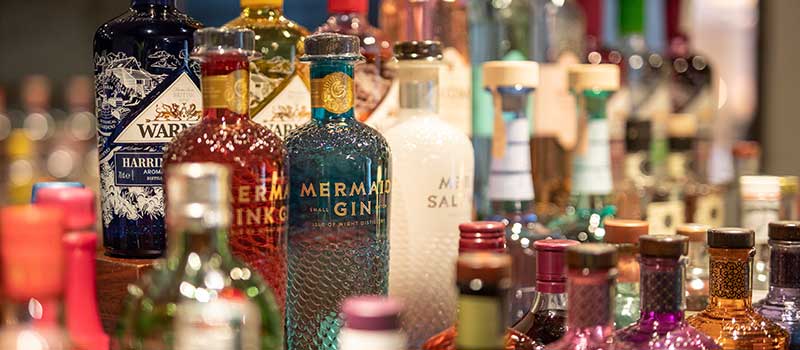
From unicorn glitter gin to pink gin and everything in-between, you’ll find it all, so gin is certainly a beverage that covers a huge range of tastes!
Our gin bar caters for every gin preference, so if you like sweet, dry, sharp, crisp, or something completely different, you’ll find it at The Connaught Hotel and Spa Bournemouth.
Our experienced colleagues can also give you a heads up on the best way to drink gin and what to pair it with. If you want to enjoy gin in the way it is meant to be enjoyed, you have to take the drinking side of it very seriously indeed!
What is gin made from?
Gin is made from juniper berries and other herbs, plants and spices. It’s essentially created by adding flavour to pure alcohol using a process called distillation.
That was the simple answer, but if you’re wondering ‘where does gin come from’ and ‘how is gin made’, it’s gonna get a little technical so bear with us!
For a drink to be called a true gin, no matter what type it is, it has to have a taste that is predominantly of juniper berries. No matter what else is added to it flavour-wise, you should always be able to taste hints of juniper, otherwise it’s not a high-class gin.
Gin, in its basic origins, is a spirit, and that means it is pure ethanol. That sounds a bit worrying, but fear not, as this is how most spirits are made! From there, different flavours are added to the ethanol via distillation.
Distillation can be done in a few different ways, but the most common method is to place the spirit (the ethanol) into a large pot and add the juniper berries and other flavours you want to include.
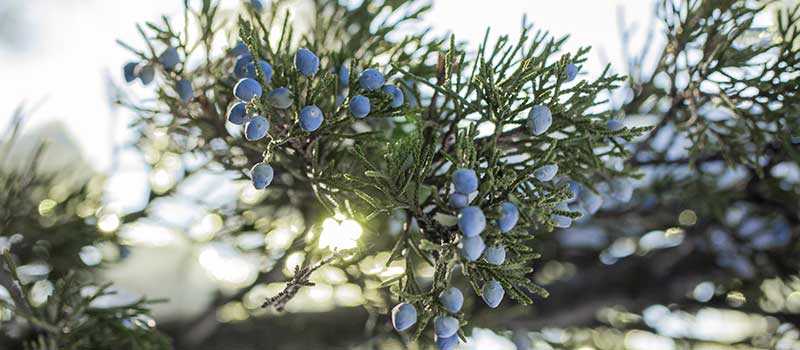
So if you wanted the gin to be strawberry flavoured, you would add the particular botanical of choice. The process from this point is called ‘steeping’ and takes up to 48 hours.
Once the steeping process is complete, water is added to the gin to bring the alcohol level down to an acceptable level.
Another method is vapour infusion. In this case, the flavours you’re adding in don’t actually come into real contact with the spirit itself, they’re placed in pots which hover above it.
When heat is added, the spirit turns to vapour and travels upwards to infuse with the fruits or other botanicals that you’ve added. This then turns into a liquid, and when you add water to it you get the same kind of effect as if you were using the steeping method.
Vapour infusion is said to give the gin a lighter flavour, but you’ll find both methods used very commonly.
Types of gin
There are four main types of gin:
- – London Dry Gin
- – Dutch Genever
- – Old Tom
- – Compound Gin
Having said that, there are countless gin varieties on sale, but they’re all based on these main gin types. Our Bournemouth gin bar alone serves over 200 varieties!
London Dry Gin – the most common type of gin around, although it doesn’t have to be made in London to fall into this category. London Dry Gin doesn’t have any artificial flavourings, nothing else is added after the re-distillation process.
Dutch Genever – rumoured to be the first ever type of gin but it is made slightly differently. In this case, Dutch Genever starts life as a mashed up grain, rather than pure spirit.
Old Tom – quite rare these days, but it is a sweeter type of gin than the others.
Compound gin – a very popular choice back in the day when gin first came about and it doesn’t have a re-distillation process. A famous type of compound gin is Hendrick’s. In this case, cucumber is added to the drink when served, to avoid confusing the delicate flavours.
Some of the most common brands you’ll see today are:
- – Hendrick’s
- – Tanqueray
- – Bombay Sapphire
- – Gin Mare
- – Beefeater
- – Gordon’s
- – Seagram’s
- – Larios
The popularity of gin means that new flavours are emerging all the time. Who would have thought that a few years ago we would be talking glitter-infused unicorn gin? Sure, this is a novelty drink and probably a fad, but it shows just how mainstream gin has become.
History of gin
Gin has been around in Britain since the 17th century, but its earliest history dates back to the 13th century in the Netherlands.
Back then, gin was simply called ‘Genever’ and it was made by using malt wine and distilling it to a huge 50% alcohol by volume level. That made it a very potent drink! At this time, gin was nothing like it is these days.
Juniper berries were added to try and sweeten the taste and make it more palatable.
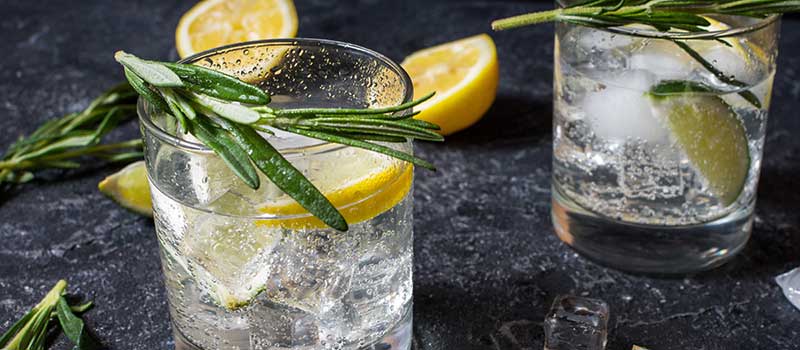
Back then gin was used as a medicinal aid and you could actually buy it in pharmacies! The drink was rumoured to help with kidney problems, gallstones and gout. It was also thought to be quite calming.
Gin was first brought to Britain in the early 17th century after English soldiers discovered it in the Netherlands whilst fighting in the 80 Years War.
After that, gin started to become popular in the mainstream but the method of making it changed significantly (thankfully) to create the delicious drink we know and love today.
Is gin gluten-free?
Yes, gin is gluten-free. Our team of gin experts are often asked this question about which gins are gluten-free, and although some types of gin are made with grains, such as rye, wheat or barley, the distillation process makes gin safe for anyone suffering with celiac disease or gluten sensitivity.
Despite that, you should always read labels first, because some manufacturers may add gluten to their gins as a flavouring. There might also be cross-contamination in large factories, so whilst in theory gin is gluten-free, you do still need to be a little cautious.
If you’re unsure when visiting our gin bar, simply ask one of our experienced colleagues and they’ll be happy to reassure you and help choose the best tipple for you.
What is pink gin?
Traditionally, pink gin is made from Plymouth gin and dark red bitters, which turns the drink a delightful shade of pink. You might find rinds of lemon used as a garnish, but this isn’t always necessary.
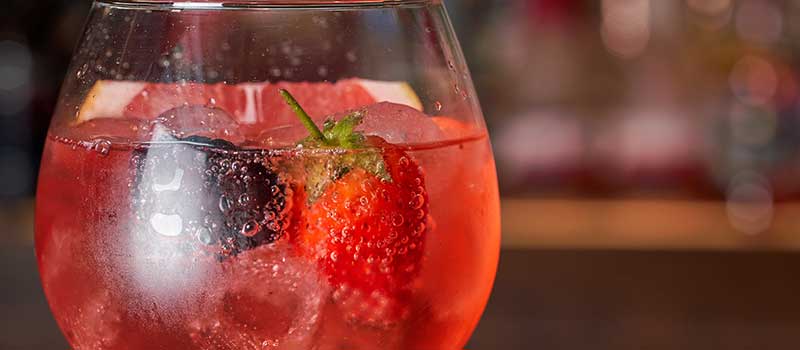
Pink gin has become huge in popularity over the last few years and the delicately sweet flavour is ideal for those who have a particularly sweet tooth. You can still taste the distinct juniper hints, ensuring it remains a firm gin and not a simple yet fashionable cocktail!
Most of the big-named gin brands all have a pink gin selection in their range.
Is gin vegan?
Gin is safe to drink if you follow a vegan diet. In fact, most spirits are safe if you’re vegan, unless the label mentions honey or anything cream-liquor based.
Most gins will not label themselves as vegan-friendly, but the fact remains that regular distilled gins are fine to consume if you follow a vegan diet.
However, there’s still a little confusion around the question ‘is pink gin vegan’? This is because some people think the pink colour comes from an animal by-product such as cochineal colouring.
Most do not, and Gordon’s, the most poplar type of pink gin around, certainly does not contain anything related to animals. Despite that, they do not label the bottle as being safe for vegans.
Does gin go off?
No, gin doesn’t go off. However, if you open a bottle and leave it stored for months or even years, it’s not going to retain its quality taste and it’s going be far less pleasurable to drink.
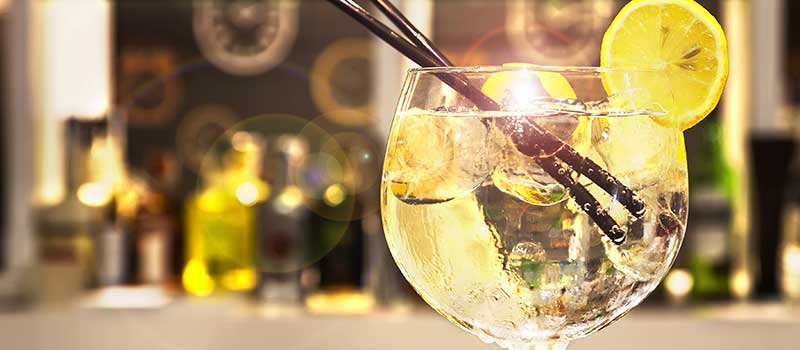
If you have a bottle unopened however, it’s going to last you for an indefinite amount of time. The same goes for most other distilled spirits.
So, can gin go off? Not really, no! But why leave it to chance, drink away!
Why is gin called Mother’s Ruin?
In the mid-18th century, gin was called Mother’s Ruin because it was thought the ability for women to drink alongside men, and the popularity of the drink, contributed to negative effects in society.
At this time, gin was everywhere, and it was so popular that many women enjoyed a glass or two. At this time, crime was on the rise, everyone was feeling less than happy, death rates were on the rise, and birth rates were falling.
Gin basically got the blame, and the availability of the drink for women was thought to lead to women neglecting their young and even falling into prostitution.
These society-wide occurrences led to gin being named Mother’s Ruin. The name has even stuck today, but thankfully we’re in a much more positive society state and we know that as long as we drink responsibly, everything is fine!
Fancy a gin now?
Now that you know everything there is to know about gin, you’re ready to head to Bournemouth’s best gin bar to enjoy some of the 200 different varieties that we have on offer.
You might like to make your way down the gin menu, or maybe you’ll find a favourite and stick to it – whatever works for you!

Everyone’s welcome to join us for a gin at The Connaught Hotel and Spa Bournemouth, whether you’re a hotel guest or local resident. Relax in our beautiful courtyard gardens when the sun’s shining or cosy up next to our fireplace when there’s a chill in the air.
Which gin will you try first?


